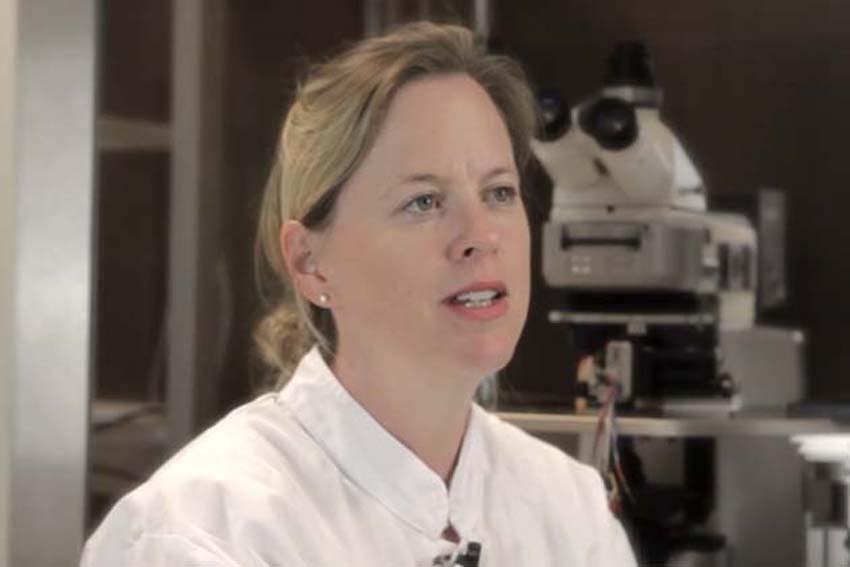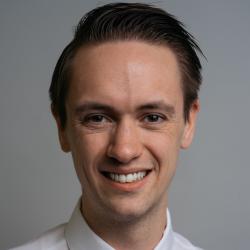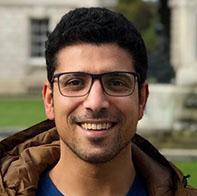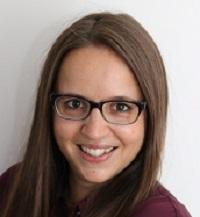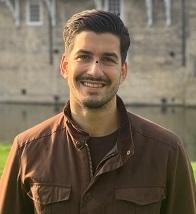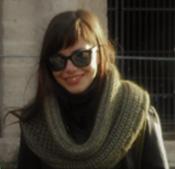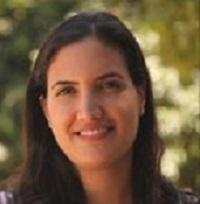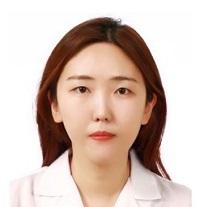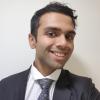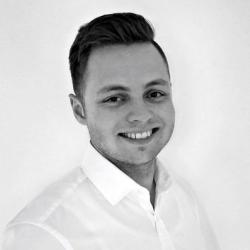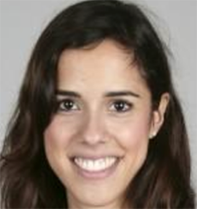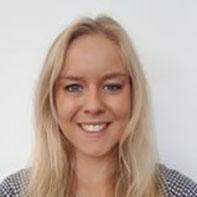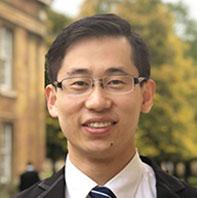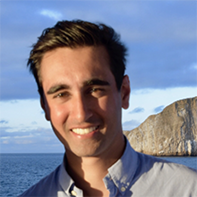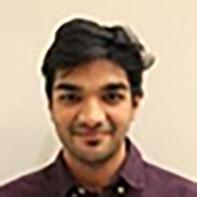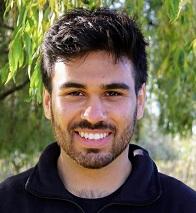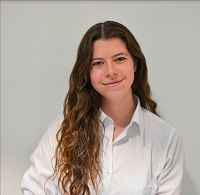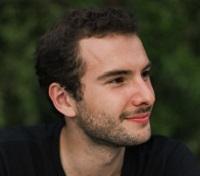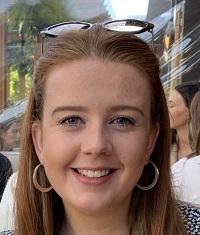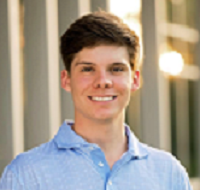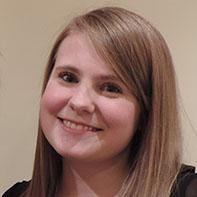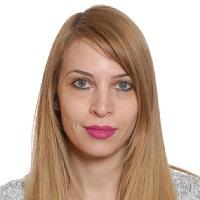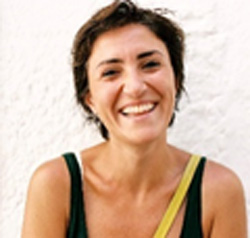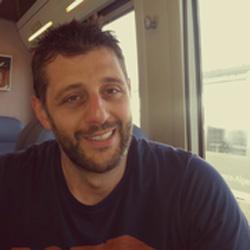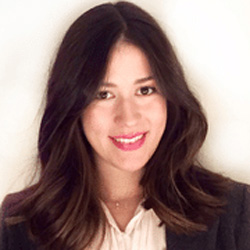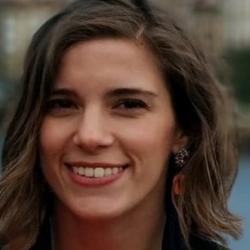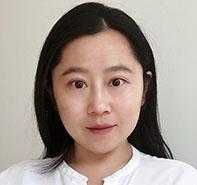People in the BEST group
Group Leader
Professor Róisín M. Owens received her BA in Natural Sciences (Mod. Biochemistry) at Trinity College Dublin, and her PhD in Biochemistry and Molecular Biology at Southampton University. She carried out two postdoc fellowships at Cornell University, on host-pathogen interactions of Mycobacterium tuberculosis in the dept. of Microbiology and Immunology with Prof. David Russell, and on rhinovirus therapeutics in the dept. of Biomedical Engineering with Prof. Moonsoo Jin. From 2009-2017 she was a group leader in the dept. of bioelectronics at Ecole des Mines de St. Etienne, on the microelectronics campus in Provence. Her current research centers on application of organic electronic materials for monitoring biological systems in vitro, with a specific interest in studying the gut-brain-microbiome axis. She has received several awards including the European Research Council starting (2011), proof of concept grant (2014) and consolidator (2016) grants, a Marie Curie fellowship, and an EMBO fellowship. She is a 2018 laureate of the Suffrage Science award. From 2014 to 2020, she was principle editor for biomaterials for MRS communications (Cambridge University Press). She became Scientific Editor for Materials Horizons (Royal Society of Chemistry) in 2020 and she serves on the advisory board of Advanced BioSystems, Journal of Applied Polymer Science (Wiley), Trends in Biotechnology and APL Materials. She is author of 70+ publications. Office: room 1.04; Email: rmo37@cam.ac.uk
Postdocs
Dr. Alexander J. Boys is a postdoctoral researcher in the BioElectronic Systems and Technologies group in the Department of Chemical Engineering and Biotechnology. He received his PhD in Materials Science and Engineering from Cornell University, working on biomechanical interfaces. His research interests include tissue engineering and biological interfacing. He is currently working on electrically monitored platforms for mimicking the blood brain barrier. Office: Room 1.07 Email: ab2661@cam.ac.uk
Dr. Archilleas Savva is a Marie Curie Fellow in the BioElectronic Systems and Technologies group in the Department of Chemical Engineering and Biotechnology. He is a Chemical Engineer with a PhD in Materials Science and Engineering. His research interests include organic electronic devices for bioelectronic applications. He is currently aiming to develop electroactive 3D bioelectronic platforms to monitor and control stem cell proliferation and differentiation. Office: Room 1.07; Email: as3024@cam.ac.uk
Dr. Verena Stoeger is a research associate in the Bioelectronic Systems Technology group at the Department of Chemical Engineering and Biotechnology. She obtained her PhD in Chemistry at the University of Vienna, investigating the role of extra-oral bitter taste receptors in the gastrointestinal tract. Her scientific background is focused on the interplay of nutrition and physiological chemistry. Verena is currently studying the interaction of the microbiome in a 3D bioelectronic model of the human intestine. Email: vs506@cam.ac.uk
Dr. Konstantinos Kallitsis is a postdoctoral researcher in the BioElectronic Systems Technologies group at the Department of Chemical Engineering and Biotechnology. He is a Chemist with a PhD in Polymer Chemistry and his research interests evolve around electroactive materials and their use in plastic electronics. He is now interfacing cell membranes with bioelectronic devices to develop a platform capable of transducing biological events into quantifiable electronic signals. Office: Room 1.07; Email: kk740@cam.ac.uk
Dr. Chrysanthi (Anthie) Moysidou is a postdoctoral research associate, in the Bioelectronic Systems Technologies group and her research focuses on developing in vitro models of the gut and brain with integrated monitoring, and studying the way these organs communicate. Office: room 1.07; Email: cmm202@cam.ac.uk
Dr Shani Kirma is a research associate in the Bioelectronic Systems Technology group at the Department of Chemical Engineering and Biotechnology. She is a Chemical Engineer and obtained her PhD in Biomedical Engineering at the Technion - Israel Institute of Technology, developing pulmonary in vitro platforms of upper airways for cytotoxicity and drug delivery assays. She is currently investigating the effects of the microbiome on the gut-brain axis using a 3D bioelectronic gut-on-chip model. She is focusing on a rat model and using it to bridge the gap between the in vivo animal and in vitro human studies. Office: Room 1.07; Email: se446@cam.ac.uk
Dr. Ju An Park is a postdoctoral researcher in the BioElectronic Systems and Technologies group in the Department of Chemical Engineering and Biotechnology. She holds a PhD degree in 3D bioprinting applied tissue engineering with a focus on the fabrication of in vitro models with inkjet-printing based cell micropatterning. Her current research interests include bioelectronics-based monitoring for damage and recovery of 3D in vitro lung models. Office: Room 1.07; Email: jap96@cam.ac.uk
Rachana Acharya is a postdoctoral research associate in theBioElectronic Systems and Technologies group in the Department of Chemical Engineering and Biotechnology. She is a materials scientist with a PhD in Chemistry and a background in the electrical and surface characterization of organic electronic devices. She is currently working on integrating organic electronic devices with in-vitro models of the gut-brain axis to study the effect of the microbiome on human health. Office: Room 1.07; Email: ra646@cam.ac.uk
Postgraduate students
Yash Mishra is a Biochemical Engineering graduate from University College London with 3 years of research experience, which includes 2 years as a Scientist at UCB Celltech, receiving various synthetic biology honours at iGEM, and working at the Surfaces and Particle Engineering Laboratory of Imperial College London. In the BioElectronic Systems and Technologies group at the University of Cambridge Department of Chemical Engineering and Biotechnology, Yash will be developing dynamic, bio-mimetic, in-vitro models of the gut-brain axis with in-line bioelectronic analytics to study the effects of the microbiome on Alzheimer’s Disease. Office: Room 1.07; Email: yym354@cam.ac.uk
Walther Traberg-Christensen is a PhD student in the Bioelectronic System Technologies group at the Department of Chemical Engineering and Biotechnology. He received his MSc in Advanced Chemical Engineering and Biotechnology from Imperial College London and his MEng in Chemical Engineering from Lancaster University. Walther is interested in cancer therapeutics research and is using biophysical techniques to study exosomes/oncosomes in a joint project between the BEST group and the BioScience Engineering group. Office: Room 1.07; Email: wt267@cam.ac.uk
Chiara Barberio is a PhD student in the Bioelectronic System Technologies Group at the Department of Chemical Engineering and Biotechnology. She holds BSc and MSc Degrees in Biological Science and Biology from University of Milano-Bicocca. She obtained an MRes in Sensor Technologies and Applications from the University of Cambridge in 2019. Prior to her master’s degree she worked for a privately held contract research corporation focussed on in vivo models’ management (e.g. rodents). Chiara’s research focuses on the development of a 3D model of the neurovascular unit (NVU) integrated with a conducting polymer device for continuous monitoring. Office: Room 1.07; Email: cb997@cam.ac.uk
Sarah Barron is a PhD student in the Bioelectronic System Technologies Group at the Department of Chemical Engineering and Biotechnology. She holds a BSc in Neuroscience and an MSc in Brain Imaging, from the University of Nottingham, and an MRes in Sensor Technologies and Applications from the University of Cambridge. Sarah's research is focused on better understanding the pathology and toxicology of barrier systems, including the Blood-Brain-Barrier, Intestinal-Epithelial-Barrier and the Pulmonary-Epithelial-barrier. She is currently working on developing flexible electronic devices to monitor complex 3D cellular models of such barrier systems, in collaboration with AstraZeneca. Office: Room 1.07; Email: slb222@cam.ac.uk
Zixuan Henry Lu is a PhD student in the Bioelectronic System Technologies Group at the Department of Chemical Engineering and Biotechnology. He received his MRes Degree in Nanomaterials from Imperial College London and his BSc in Materials Science and Engineering from the University of California, Los Angeles (UCLA). He is currently developing organic electronic devices to integrate with lipid bilayer and native cell membranes for drug screening purposes.Office: Room 1.07; Email: zl422@cam.ac.uk
Karan Bali is a 3rd year PhD student in the Bioelectronic System Technologies group at the Department of Chemical Engineering and Biotechnology. He holds a BA and MSc in Molecular and Cellular Biochemistry from the University of Oxford. Karan’s research is focused on integrating bioelectronic devices with bacterial membranes in order to investigate phage interactions and antimicrobial compound screening. He is also interested in extending this research to integrate photosynthetic membranes for the development of biophotovoltaic devices. Office: room 1.07; Email: kb690@cam.ac.uk
Suraj Pavagada is a joint PhD student at the MRC Cancer Unit, School of Clinical Medicine, and the Department of Chemical Engineering & Biotechnology. He holds a BEng in Biotechnology from PES University, Bangalore, an MRes in Medical Device Design & Entrepreneurship from Imperial College London, and an MRes in Sensor Technologies and Applications from the University of Cambridge. His current research as part of the Bioelectronic Systems Technology (BEST) group and the BioNano Engineering group, involves the development of nano-enabled point-of-care (POC) electrochemical biosensors for early detection of oesophageal adenocarcinoma. Office: room 1.07; Email: ssp29@cam.ac.uk
Kumar Thurimella is a second year Gates Cambridge PhD scholar in the Bioelectronic System Technologies Group at the Department of Chemical Engineering and Biotechnology. He is also advised by Sergio Bacallado in the Statistical Laboratory. He has finished his pre-clinical years for his MD Degree at the University of Colorado, School of Medicine and finished his MPhil from the Sanger Institute and his BSc in Applied Mathematics from the University of Colorado, Boulder. He previously worked as a Software Engineer at Uber in San Francisco. He is currently developing mathematical models and software to understand host-microbe-immune interactions of the human gut via bioelectronic gut models. Office: Room 1.07; Email: kkt22@cam.ac.uk
Reece McCoy is a 1st year PhD student in the Bioelectronic System Technologies group at the Department of Chemical Engineering and Biotechnology. He holds an MEng in Chemical Engineering from the University of Birmingham and an MRes in Nanoscience and Nanotechnology from the University of Cambridge. His previous research focussed on the development of cell membrane based therapeutics for cancer treatment and magnetic nanoparticle delivery to induce stem cell differentiation for orthopaedic therapy. Reece's research is now focused on integrating bioelectronic devices with cell membranes derived from cells relevant to the gut-brain axis to investigate ligand-receptor interactions with drugs and the microbiome. Office: room 1.07; Email: rm991@cam.ac.uk
Sophie Oldroyd is a first year PhD student in the Bioelectronic System Technologies Group at the Department of Chemical Engineering and Biotechnology. She holds an MEng in Engineering Science from the University of Oxford and received an MRes in Sensor Technologies for a Healthy and Sustainable Future from the University of Cambridge. Her current research is centred around developing a bioelectronic sensor system for monitoring the permeability and contractility of the gut barrier, and how the homeostasis of the barrier relates to various gastrointestinal diseases. Office: Room 1.07; Email: svo22@cam.ac.uk
Alexandra Wheeler-Enslin is a 1st year PhD student in the Bioelectronic Systems Technology group at the Department of Chemical Engineering and Biotechnology. She holds an MPhil in Biotechnology from the University of Cambridge and a BSc(Eng) in Chemical Engineering from the University of Cape Town. Prior to her master’s degree she worked in the financial sector for almost 5 years. Subsequently her research focussed on the use of DNA origami nanostructures as a novel way to target bacteria. Alex's research is now focused on using organic electronic devices to investigate how bacteria affect cell membranes. Office: Room 1.07; Email: aew82@cam.ac.uk
Masters Students
Amaury Genovese is a Master’s student in Biotechnology at the Chemical Engineering and Biotechnology department. He received his BEng in Chemical Engineering from University College London. His research project focuses on the use of bioelectronics and cell membrane models to explore the oncogenic potential of tumour-derived extracellular vesicles.
Kate Farrelly is a master's student completing her MPhil in Biotechnology. She holds a BEng in Biomedical Engineering from the University of Dundee, Scotland. Joining the Bioelectronics Systems Technology (BEST) group, BioNano Engineering group and the MRC Cancer group, Kates's research involves PEDOT based nanomaterials for highly sensitive biosensing with applications relating to the early detection of cancer. Email: kf407@cam.ac.uk
John Magness is a Biotechnology MPhil student in the Chemical Engineering and Biotechnology Department. Has a BSc in chemical engineering from the University of Arkansas and did undergraduate research there on biomaterial thin-films for nerve regeneration. Current research is on anti-cancer drug delivery via metal organic frameworks (MOFs) to respiratory cell models. Email: jgm46@cam.ac.uk
Technical support
Aimee Withers is a research laboratory technician.Prior to joining the BEST group she worked as a media technician at CRUK Cambridge Institute. She has joined the BEST group to support cell culture activities. Office: room 1.07; Email: amw209@cam.ac.uk
Ioanna Charalampous is a research assistant in the Bioelectronic Systems Technologies Group at the Department of Chemical Engineering and Biotechnology of The University of Cambridge. She is working on “membranes-on-a-chip”. She is extracting and characterizing native cell membranes and supports the experimental activities of the group. Prior to joining the BEST group, she worked as a research assistant at King Abdullah University of Science and Technology in Saudi Arabia. Previously, she was employed at different positions at the food industry in Cyprus. Office: room 1.07; Email: ic398@cam.ac.uk
Visiting students
Visiting Scientists
Dr. Donata Iandolo was a Marie-Sklodowska Curie postdoctoral fellow in the Department of Chemical Engineering and Biotechnology. She received her master’s degree in Industrial Biotechnologies at the University of Naples “Federico II” (Italy) and a PhD thesis in Industrial Biotechnologies. She then joined the Soft Matter Nanotechnology Group at the National Nanotechnology Laboratory (CNR-NANO) (Lecce, Italy) and subsequently worked with Prof. Magnus Berggren at the Laboratory of Organic Electronics. Her research focus is mainly on the integration of electroactive biomimetic 3D scaffolds with human stem cells to develop implantable devices for complete bone defects filling. Since completing her Marie Curie Fellowship she has moved to an independent position at the Ecole des Mines de St. Etienne in France.
Dr. Charalampos Pitsalidis was a research associate in the Department of Chemical Engineering and Biotechnology, in the BioElectronic Systems and Technologies group. With a PhD degree in organic electronics, during his postdoctoral research he focused on bridging novel organic electronic devices with biological systems toward next generation in vitro cell culture platforms.
Dr. Anna-Maria Pappa was an Oppenheimer Research Fellow in the Department of Chemical Engineering and Biotechnology, in the BioElectronic Systems and Technologies group. She holds a PhD degree in bioelectronics with a focus on biosensing. Her current research interests include the development of in vitro electronic platforms for drug testing, focusing on antibiotics.
Dr. Janire Saez was a Marie Curie Fellow in the Department of Chemical Engineering and Biotechnology, in the BioElectronic Systems and Technologies group. She has a Chemistry degree and she holds a PhD in the integration of smart materials into microfluidic devices for fluidic control and sensing.
Dr. Ying Fu was a research associate in the Department of Chemical Engineering and Biotechnology, in the BioElectronic Systems and Technologies group. She holds a PhD degree in Analytical Chemistry, and her research interests include on novel biosensor development and application.
Former Members
Aimie Pavia completed her PhD at the department of Bioelectronics at the Ecole des Mines de St. Etienne co-funded by Panaxium. Aimie was working on development of novel methods for fabrication of organic bioelectronic devices for interfacing with biological tissues in vitro and in vivo. She is now a research scientist at Panaxium.
Vladimir Shapovalov was a Master’s student in the Chemical Engineering and Biotechnology department. His work in the BEST group was on in silico and in vitro analysis of antibiotic interactions with bacterial outer membranes.
Julia Yan joined us in her 4th year of the Cambridge Chemical Engineering via Natural Sciences degree. Her research project for Part IIB was on in silico and in vitro analysis of antibiotic interactions with bacterial outer membranes.
Mercedes Cornelius was a research assistant in the BEST group. She is a biophysics, biochemistry, and applied mathematics graduate from the University of California Los Angeles (UCLA). Prior to joining the BEST group she was an advanced masters fellow at Peking University Health Science Center in the pharmaceutical analysis of traditional Chinese medicines metabolites. She is now doing a PhD in Physics at Cambridge.
Maite Garcia-Hernando was a visiting student from Spain. She studied Biotechnology at the University of the Basque Country (UPV/EHU) and obtained her degree in 2015. Now she is doing her PhD at the Microfluidics Cluster UPV/EHU, working in the development of integrated microfluidic devices for biomedical applications.
Romane Vallet is a student in the French engineering school Mines de Saint-Étienne specialized in microelectronics and computer sciences, studying biotechnology, she was a visitor in the BEST group in 2019.
Priscila Cavassin was a Master's student in Applied Physics at University of São Paulo while visiting the BEST group in 2019. She is now doing a PhD in Switzerland with Professor Natalie Banerjee.
Pablo Rioboó is a Master's student in Translational Research and Personalized Medicine at University of Granada in Spain. He was a visitor in the BEST group until April 2019. His research focused on the design and characterization of conductive scaffolds and hydrogels for mimicking different tissues and their integration within microfluidic devices.
Eleonora Martinelli is a PhD student in Bioengineering at École Polytechnique Fédérale de Lausanne (EPFL) in Switzerland. She was a visitor in the BEST group until October 2020. Her research focuses on the development of a biologically accurate mimic of the neuronal synapse on top of an organic electronic device.


